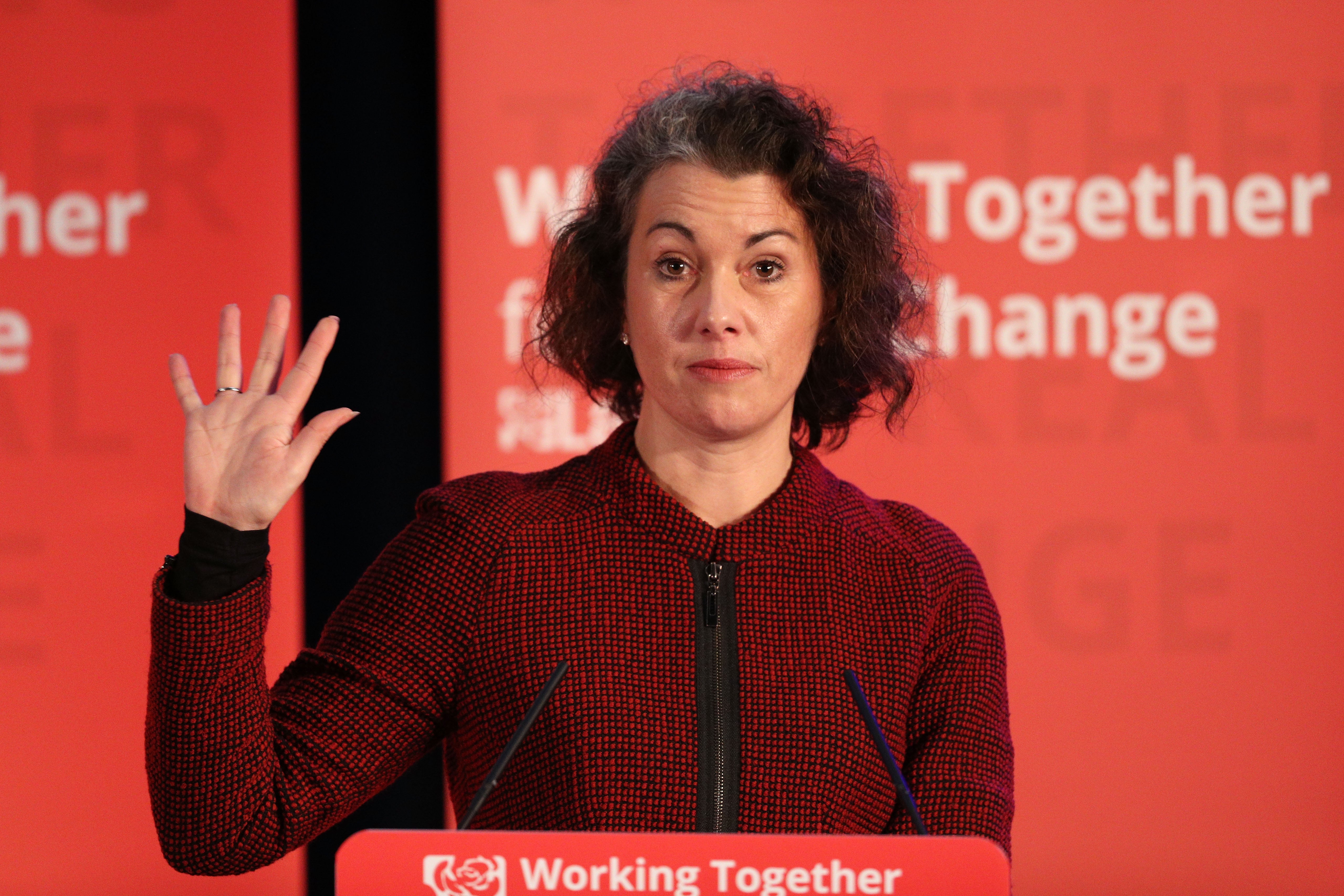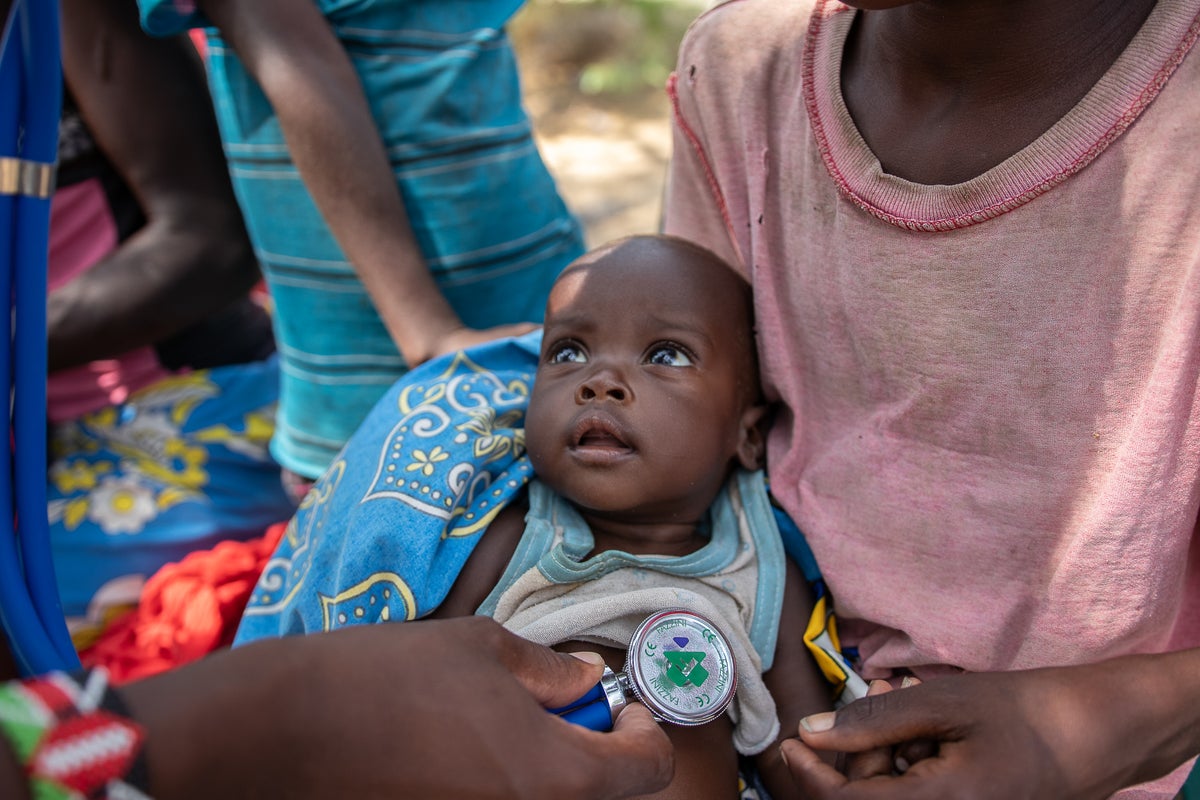Your support helps us to tell the story
From reproductive rights to climate change to Big Tech, The Independent is on the ground when the story is developing. Whether it’s investigating the financials of Elon Musk’s pro-Trump PAC or producing our latest documentary, ‘The A Word’, which shines a light on the American women fighting for reproductive rights, we know how important it is to parse out the facts from the messaging.
At such a critical moment in US history, we need reporters on the ground. Your donation allows us to keep sending journalists to speak to both sides of the story.
The Independent is trusted by Americans across the entire political spectrum. And unlike many other quality news outlets, we choose not to lock Americans out of our reporting and analysis with paywalls. We believe quality journalism should be available to everyone, paid for by those who can afford it.
Your support makes all the difference.Read more
UK aid cuts are a “tragic error” that put Britain’s national security at risk, MPs have said. With the government also failing to take into account improvements to poor people’s lives when deciding if foreign aid spending is good value for money.
The International Development Committee (IDC) has raised concerns in a new report that slashing the development budget will “continue to lead to unrest and further crises in the future” and will have “devastating consequences” across the world. The cuts will threaten not only the UK’s soft power “but also its national security”.
The cross-party group of MPs said it was “disappointed” by the government’s focus on the cost of development projects to the public purse without considering how good they are at reducing poverty, which it said risked “worse outcomes for the world’s most vulnerable”.
The inquiry has also called for spending on overseas aid to be brought back up to 0.5 per cent of national income. Spending on such projects was reduced from 0.7 to 0.5 per cent of the economy by the last Conservative government in 2021, amid the Covid-19 pandemic – a move that was supposed to be temporary. But in February this year, after Labour took office, Sir Keir Starmer moved to reduce spending even further from 0.5 to 0.3 per cent.
 Chair of the international development committee Sarah Champion said ‘savage’ aid cuts would cost lives. (Getty Images)
Chair of the international development committee Sarah Champion said ‘savage’ aid cuts would cost lives. (Getty Images)
“The savage aid cuts announced this year are already proving to be a tragic error that will cost lives and livelihoods, undermine our international standing and ultimately threaten our national security. They must be reversed,” said chair of the committee Sarah Champion.
“Reducing poverty must be the central aim of the development budget,” she added. “While accountability to the taxpayer is an important consideration, the [Foreign Commonwealth and Development Office] (FCDO)’s current definition of value for money risks diverting focus away from improving the lives of the most vulnerable – the very reason the aid budget exists at all”.
“The government must take urgent action to wipe out waste and ensure the money we are still spending makes a genuine difference,” Champion added.
While the MPs acknowledged value to the British taxpayer should be an “essential consideration” in any government spending, experts consulted for the report warned that this couldn’t be judged in the short-term.
Deborah Doane, founder of the Reimagining the International NGO (RINGO) project said: “I would expect that for the UK and other European donors who are cutting aid budgets, humanitarian work will be prioritised over ‘development’ – which unfortunately is the work that builds long-term resilience and should lead to reducing the need of humanitarian aid”.
Former chair of the IDC, Andrew Mitchell MP, said “chopping and changing figures” as a result of cuts was “very bad value for taxpayers. Why? Because you do not stop and start programmes: if you break them off, you lose a lot of the benefit of the initial investment; then you restart it and you have to go out again. It is bad value for money. Development is, essentially, long term”, he said.
Successive cuts to UK aid spending in recent years had “reduced the effectiveness of aid in reaching those most in need”, Mitchell added.
The inquiry also called for a cap on the percentage of aid budgets which could be spent on asylum hotels. The government has said it will end the use of asylum hotels by 2029.
This article has been produced as part of The Independent’s Rethinking Global Aid project
